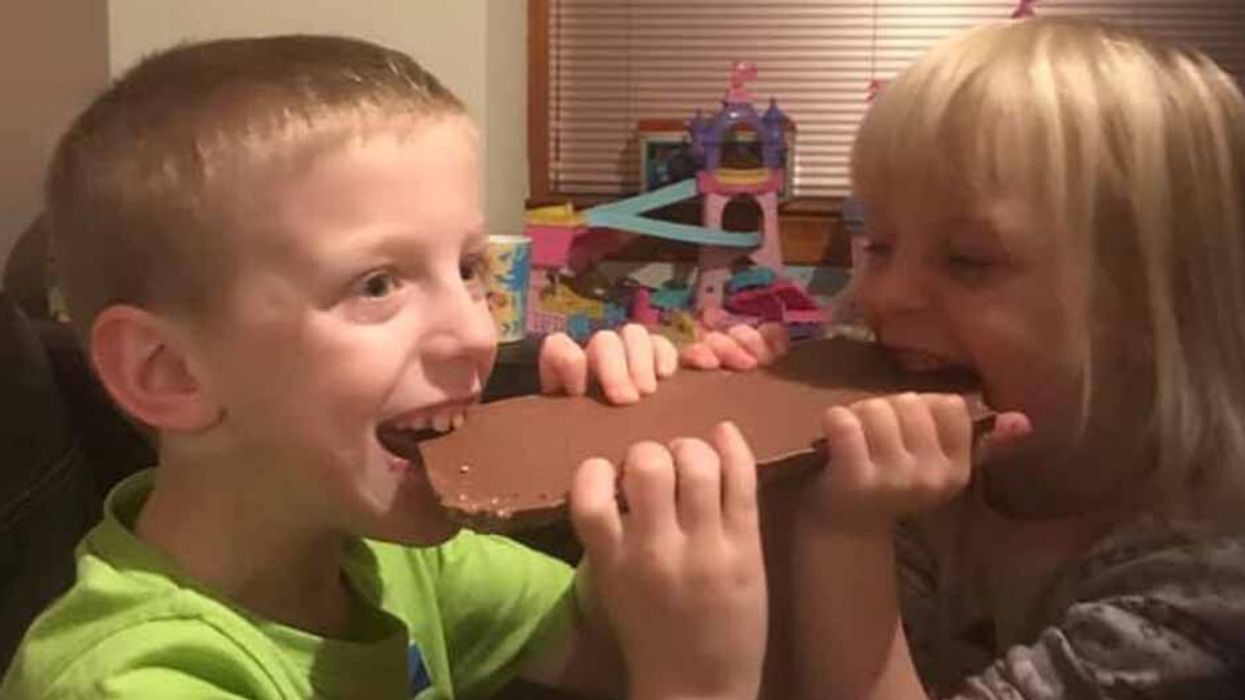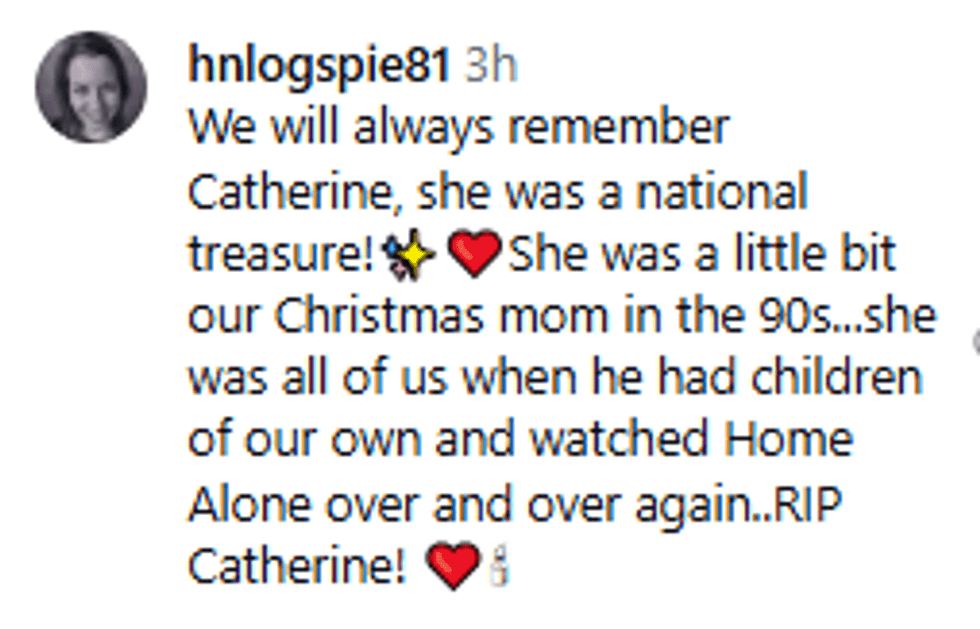A psychiatrist has revealed how a simple throat infection left her 10-year-old son like a child “possessed" – laughing maniacally, holding a knife to his throat and with bizarre phobias, including a terror of stepping on seagull droppings.
Usually a sociable, loving boy, Jack Maclaine's personality changed overnight, terrifying his mom, Alison, 44, and full-time dad, Neil, 64, with distressing outbursts, declaring on one occasion: “When we get home I'm going to take my clothes off and sit outside until I freeze to death."
Eventually, after four months, Jack, of Dumfries, Scotland, was diagnosed with PANDAS, a set of conditions which result in inflammation of the brain, causing a variety of neuropsychiatric complaints, such as obsessive compulsive disorder (OCD), tics and eating disorders.
Although Jack's condition improved within days of being put on a course of antibiotics, his parents are now determined to raise awareness of PANDAS – pediatric autoimmune neuropsychiatric disorder – which is often misdiagnosed as a behavioral issue.
Alison, who also has a daughter Cara, seven, said: “Jack was a really sociable eight-year-old. He loved playing football, doing gymnastics, martial arts and being with his friends.
“But in January 2018 that changed overnight. One Saturday he was due to play in a football tournament, but he became completely overwhelmed by anxiety and couldn't get himself into the building.

She continued: “When we got back in the car to go home, he just kept apologizing over and over. He was saying, 'I do not deserve to have friends,' and, 'I do not deserve to play football.'
“Then that became, 'I do not deserve to live.' He said, 'When we get home I'm going to take my clothes off and sit outside until I freeze to death.'
“We were really shocked as he'd never said anything like it before."

Alison recalled: “We were asking him if something had happened. We thought maybe when he'd been out playing that a bigger person had done something awful to him. He kept saying that nothing had happened and he couldn't explain why he felt like that."
That night he kept asking his horrified parents why they would not help him to die and, the following day, Alison discovered a note he had written saying: “I'm really sorry I don't want to live anymore. I want to be in heaven."
Terrified in case he attempted suicide, his mom made an appointment with their GP, who made an urgent referral to the Child and Adolescent Mental Health Services (CAMHS).

Recalling the appointment, Alison said: “He looked like a severely autistic child. He was playing with the toys on the floor and was in his own little world. He did not look like Jack, he looked like a lost little boy.
“They thought he might have been on the autistic spectrum, but before this there was nothing suggesting that. It was so sudden and made no sense.
“At one point he looked terrified, his pupils were really dilated and we weren't sure if he recognized us or if he thought we were strangers."
Over the ensuing weeks, Jack developed vocal tics and a stutter, as well as starting to regress – playing with baby toys and watching Thomas the Tank Engine, which he had not seen since he was three.
He would repeat meaningless phrases, screech, or bark like a dog and became sensitive to noise and smells.
Alison continued: “He was very irritable. We felt like we were walking on eggshells around him. He had really severe mood swings and really isolated himself. He couldn't cope with people."

“One of us talking was enough to set him off and he could be extremely aggressive towards me. There was one moment when he was jumping up and down on my neck laughing this evil laugh and when he spoke it was like it wasn't his voice. It was as if he was possessed," Alison explained.
“Throughout his ordeal, he was going to school, but there were times when he would really struggle. He would have a full blown temper tantrum at the school gates, like a two-year old. Most of the time he managed to hold it together at school, but he would come home like a coiled spring ready to explode if you said the wrong thing."
But the person Jack was hardest on was himself.

Alison said: “He developed a really restricted diet, just living off pasta and cheese for months and he would have to eat by himself, in a separate room.
“He stopped sleeping in his bed, saying he didn't deserve to sleep in a nice comfy bed. He would wander around looking for the most uncomfortable place to sleep. Eventually, we managed to persuade him to stay on the sofa bed downstairs.
“It was such a severe change in him that there had to be an explanation."
Desperate for answers, after taking Jack to see a pediatrician in March 2018, he had an MRI scan and an electroencephalogram (EEG), which is used to find problems related to electrical activity in the brain."

But the results showed nothing unusual and it was suggested he could have an anxiety disorder, having ruled out autism.
“I know it sounds shocking, but I was hoping the MRI would show something that would explain it," said Alison. “When it came back completely normal I felt strangely disappointed that my child had a normal brain.
“I thought Jack would be happy that his brain was normal, but he was completely devastated. He burst into tears and said, 'This has made me feel worse that there's no reason. This makes me want to die even more.'"

After conducting some online research, Alison came across PANDAS but, with medics reluctant to test for the still little-known condition, she sought a second opinion from consultant pediatrician Dr. Tim Ubhi at the Children's e-Hospital, an online service providing expert pediatric advice to parents and their children.
After a Skype consultation in May 2018, he diagnosed PANDAS and devised a treatment plan of antibiotics and ibuprofen – an anti-inflammatory painkiller – which Jack's doctor agreed to.
“I felt like he was the first person to listen to me," said Alison.
She continued: “Blood test results showed Jack's stress antibodies were raised.
“The way I explained it to Jack is that the antibodies had been attacking his brain rather than the source of the infection.
“Dr. Ubhi suggested it could have been caused by a strep infection at the back of the throat, because his strep levels were raised. Looking back, about a week before it happened, Jack was complaining of a sore throat, but that was it."

Alison said: “Now he was so happy to have an explanation for what had been happening. It made such a difference to know that there were other people with it, too."
Within a couple of days of taking antibiotics in May – after four months of torment – Jack was like his old self again.
Alison said: “Cara and I were going to the supermarket and he actually volunteered to come with us, which he hadn't done for five months.
“We all walked around with huge grins on our faces. Cara was over the moon to have her big brother back. They were so close before this happened."

But, after two weeks, he went down to a maintenance dose of antibiotics and started to deteriorate again – talking about running away and becoming homeless.
“All the thoughts about dying had come back. And then it became harder to get the medication in him, because he didn't want to get better, he wanted to die," Alison said.
“There was one occasion when he'd just come off them and out of the blue he held a knife to his throat and said he was going to die. We weren't prepared for it, so his sister saw all this happening, which was awful."

“Now we are in this cycle of when he's on antibiotics he is okay, but when he comes off them he deteriorates again," she explained.
Alison also feels that, although doctors agree with his PANDAS diagnosis, it can be difficult to get his ongoing antibiotics prescribed, meaning that, at times, his treatment has been fragmented.
She said: “I think partly because there's no published studies demonstrating that long-term antibiotics are beneficial and there's a reluctance to prescribe them because there's concerns about us becoming resistant to them."
During a family break to the Haven Holiday park in Aire, Scotland, in July, Jack – off antibiotics at the time – was really struggling with anxiety and irritability, according to his mom.
“He would normally love to go on the go karts but he was too anxious," she said. “There were times when he talked about running away and nobody loving him.
“He developed really weird obsessions, like he became scared of steps and stairs and of walking on seagull poo. We were by the seaside, so it would take us hours to get anywhere."

One of the saddest consequences of Jack's illness has been the damage it has done to his relationship with Cara, who has become wary of the big brother she once so adored.
“They were like two peas in a pod before all this, then he withdrew and was really irritable and she didn't understand what it was about," explained Alison.
“But she is a constant source of love and optimism to us all."

Alison added: “For Neil and me it has felt, at times, like we have been judged by everyone. The fact Jack could hold it together sometimes, particularly at school, meant some medics thought it was a lack of boundaries at home causing the problem. One even suggested we take up parenting classes.
“But we have also received a lot of understanding and help from other doctors. I do realize this is a very difficult condition to diagnose and treat."
Meanwhile, despite not knowing what the future holds, the family remain optimistic.
Alison added: “There are some studies that suggest children grow out of PANDAS when they reach puberty, because the immune system matures. But there is a lack of research, so we really don't know. There's still a long way to go in terms of getting this illness properly recognized."
Alison added: “We take each day as it comes but we do feel hopeful. Jack's missed out on two years of his childhood, but throughout it he has been really strong and brave. Whatever life throws at him now he will be able to handle it.
“Now I am joining forces with the charity PANS PANDAS UK – who have been an amazing source of support and advice to us – to raise awareness of the illness.
“I want other parents to be aware of the conditions PANS and PANDAS, so that, if their child suddenly develops these symptoms or changes in personality they see their GP immediately, and get antibiotics as soon as possible so that, hopefully, they can avoid all this pain."








 @realDonaldTrump/Truth Social
@realDonaldTrump/Truth Social






 @.a.zan/TikTok
@.a.zan/TikTok @.a.zan/TikTok
@.a.zan/TikTok @.a.zan/TikTok
@.a.zan/TikTok @.a.zan/TikTok
@.a.zan/TikTok @.a.zan/TikTok
@.a.zan/TikTok @.a.zan/TikTok
@.a.zan/TikTok @.a.zan/TikTok
@.a.zan/TikTok @.a.zan/TikTok
@.a.zan/TikTok @.a.zan/TikTok
@.a.zan/TikTok @.a.zan/TikTok
@.a.zan/TikTok @.a.zan/TikTok
@.a.zan/TikTok @.a.zan/TikTok
@.a.zan/TikTok @.a.zan/TikTok
@.a.zan/TikTok @.a.zan/TikTok
@.a.zan/TikTok @.a.zan/TikTok
@.a.zan/TikTok

 @culkamania/Instagram
@culkamania/Instagram @culkamania/Instagram
@culkamania/Instagram @culkamania/Instagram
@culkamania/Instagram @culkamania/Instagram
@culkamania/Instagram @culkamania/Instagram
@culkamania/Instagram @culkamania/Instagram
@culkamania/Instagram @culkamania/Instagram
@culkamania/Instagram @culkamania/Instagram
@culkamania/Instagram @culkamania/Instagram
@culkamania/Instagram @culkamania/Instagram
@culkamania/Instagram